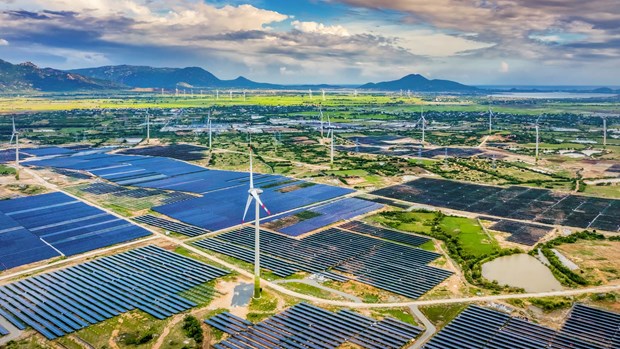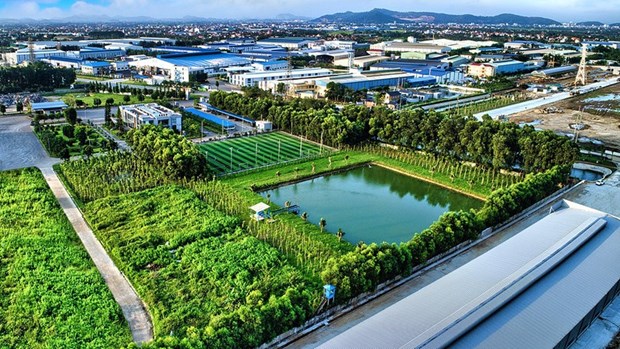Circular economy a choice for sustainable development
Amidst worsening environmental pollution and natural resource exhaustion, the circular economy model emerges as a visionary solution for the society and economy.
Amidst worsening environmental pollution and natural resource exhaustion, the circular economy model emerges as a visionary solution for the society and economy.
In Vietnam, many new production and business models approaching a circular economy are being implemented rather successfully in the private sector, creating many opportunities for the economy, the Nhan dan (People) daily reported.
Eco-industrial parks in Ninh Binh province, Can Tho city, and Da Nang city are examples, helping save millions of US dollars each year.
The foreign direct investment (FDI) sector has proved to be a dynamic player in promoting the circular economy by devising plans to recycle waste and by-products through modern processes.
Among them, Nestlé is producing unbaked bricks from boiler waste, fertilisers from non-hazardous waste mud, and eco roof sheets from milk cartons. It also plans to recycle and reuse 100% of product packages by 2025. Meanwhile, nearly 99% of waste or by-products of Heineken Vietnam have been reused or recycled, and four of its six beer breweries are using heat energy generated from renewable energy and low-emission fuels. Unilever Vietnam is implementing a programme on collecting and recycling plastic packages and sorting waste at source.
In the textile - garment sector, some enterprises have recycled fabric scraps into new fabrics and used them as part of new clothes labelled “CE”, which enables products to be sold in Europe and the European Free Trade Association (EFTA).
However, some experts said production and business models of a circular economy haven’t become popular in Vietnam, since most of the enterprises still focus on short-term targets while the circular economy creates long-term values.
They also pointed out the shortages of legal and infrastructure conditions, the low demand for circular and replaceable products, the lack of experts in this field, and the current GDP calculation methodology yet to give due attention to social and environmental factors.
Despite challenges, the circular economy generates a number of benefits for the economy. Each change starts from small actions, and it is necessary to pin hopes in this model and encourage the parties concerned to support and follow, said Director of the National Startup Support Centre Pham Dung Nam as cited by Nhan dan.
Developing a circular economy is even harder than promoting innovation because innovation focuses on the economic aspect while a circular economy balanced both business and environmental protection dimensions, according to the newspaper.
The Party and State have affirmed its viewpoint on developing a circular economy so as to achieve sustainable development.
On February 11, 2020, the Politburo issued a resolution on orientations for the national energy development strategy by 2030, with a vision to 2045. This document affirms the priority for renewable energy and waste-to-energy plants to protect the environment and develop the circular economy. The 2020 Law on Environmental Protection officially includes regulations on this economic model.
The plan on developing the circular economy in Vietnam, approved by the Prime Minister on June 7, 2022, identifies the circular economy development as inevitable matching the global trend and the requirement for making breakthroughs in economic recovery and realisation of the Sustainable Development Goals.
Pham Hong Quat, Direct of the National Agency for Technology Entrepreneurship and Commercialisation Development, said in the context of global economic integration, Vietnam has joined a number of new-generation free trade agreements with many countries and regions. Those deals include commitments on environmental safety, so adopting the circular economy model is an inevitable trend to achieve sustainable development.
Suggesting several measures, Dr Nguyen The Chinh, former Director of the Institute of Strategy and Policy on Natural Resources and Environment, noted the State should keep fine-tuning policies and laws, issue regulations and standards on circular economy development that are in line with regional and global trends, and use such tools as technical standards and taxes to minimise resource overexploitation and waste during the production process.
It also needs to convert to a growth model based on efficient use of natural resources, encourage enterprises to adopt practices of a circular economy, and issue strict rules on companies’ responsibility for their waste, he added./.










